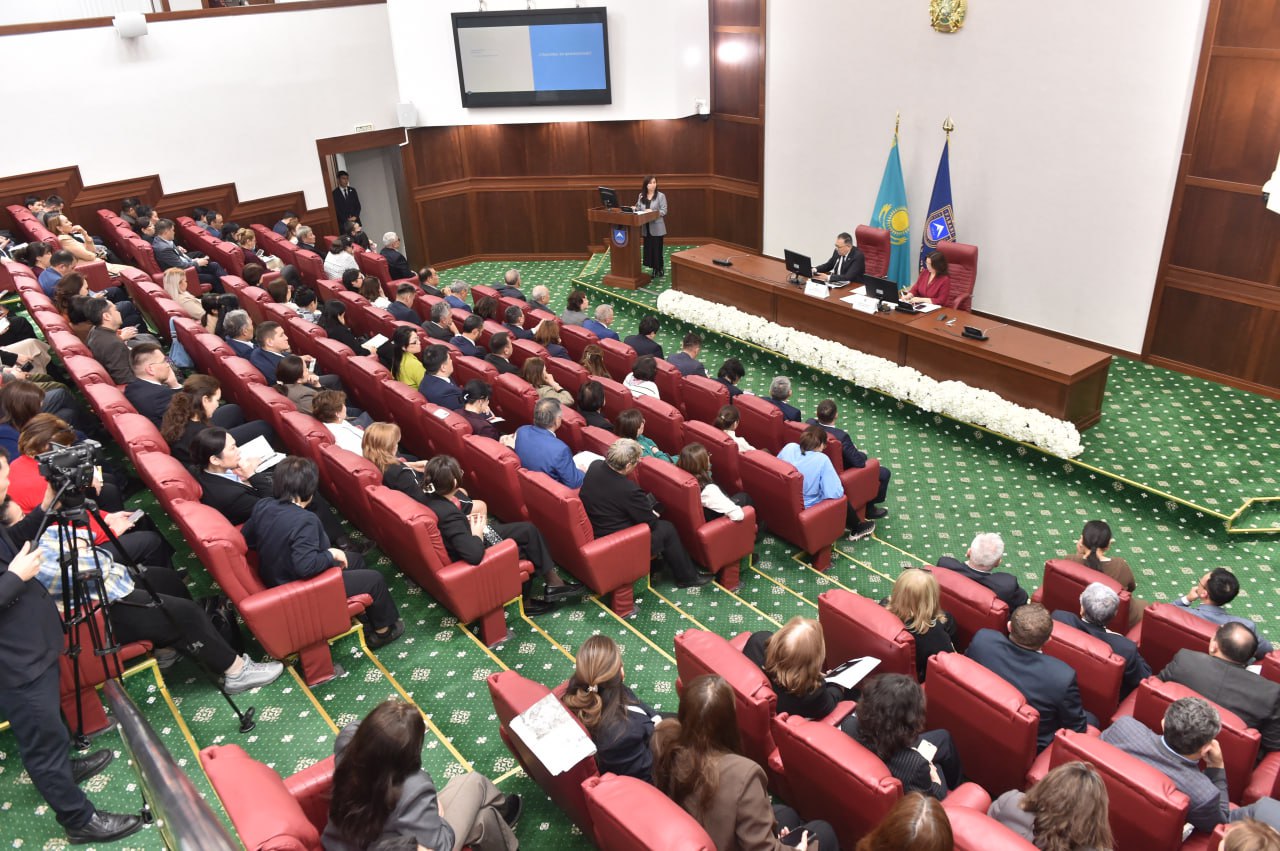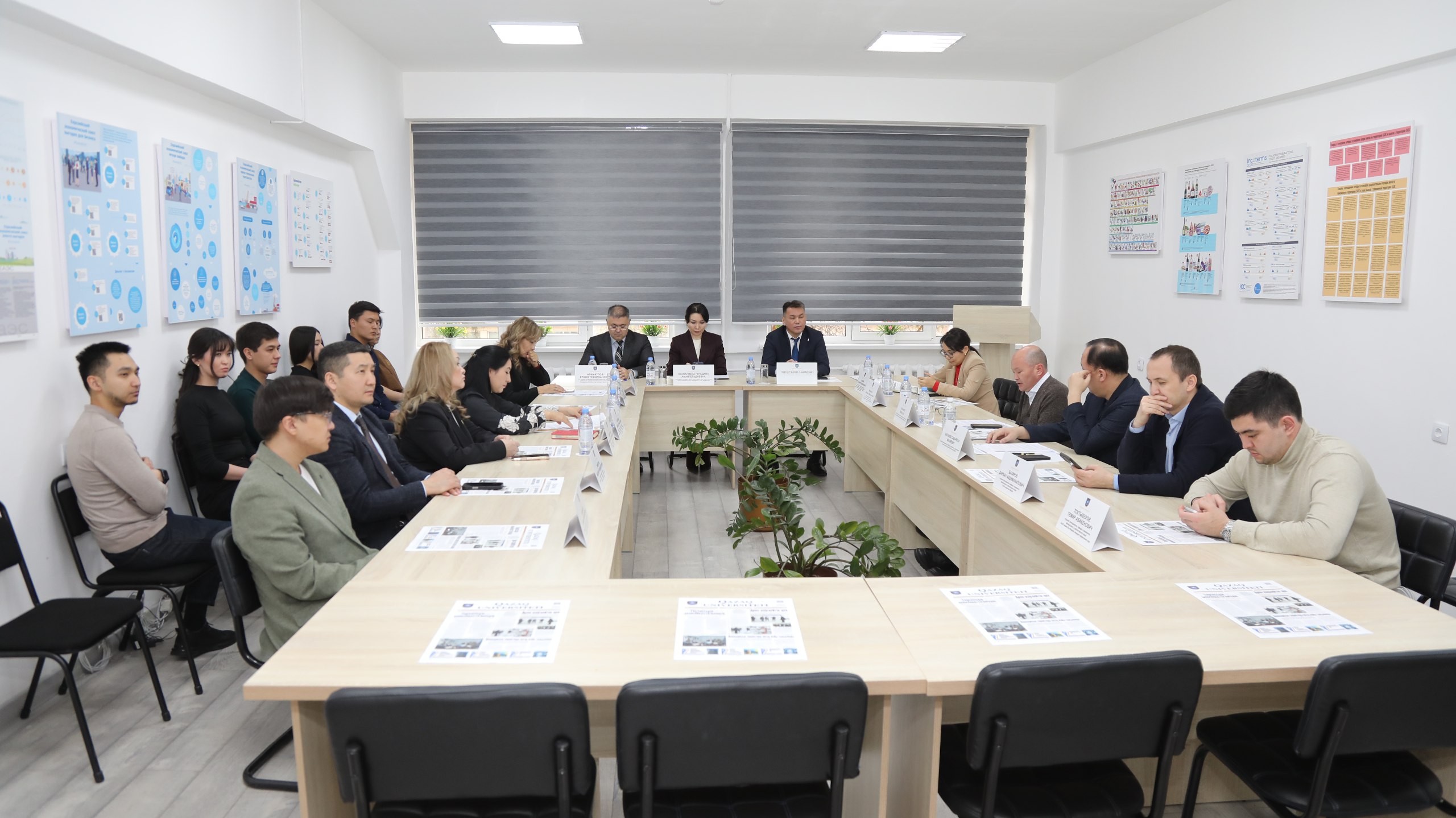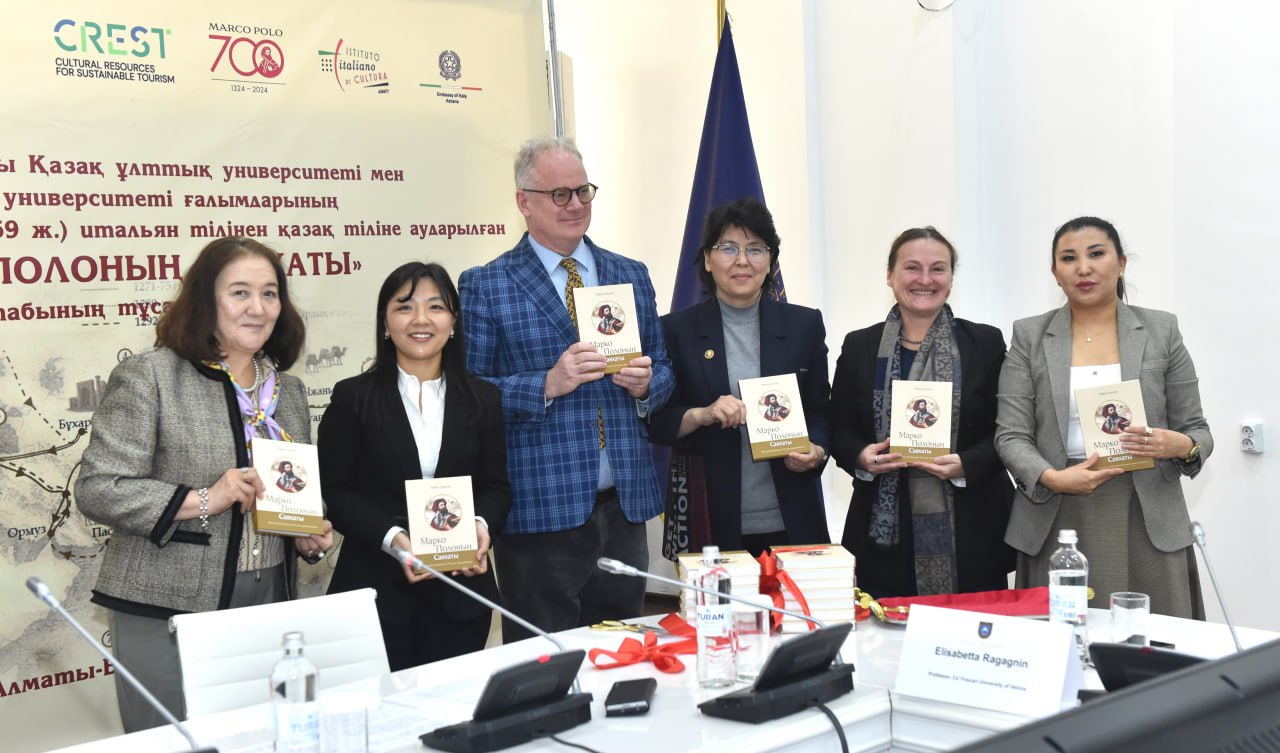- Main
- News
- Issues of increasing digital literacy were discussed. What should the information prism be?
Issues of increasing digital literacy were discussed. What should the information prism be?
.jpg)
At the IV Central Asian scientific seminar “Media and information literacy in the digital space,” scientists from Europe and Asia sought an answer to the question of what the prism of information and disinformation should be.
The representative office of the UN Department of Global Communications at the Al-Farabi Kazakh National University, in collaboration with the UN Department of Public Information in Almaty, celebrated the week of global media and information literacy.
Speaking at the opening of the event, the university’s projector for academic affairs, Lyazzat Erkinbaeva, emphasized: “Accuracy, reliability and legal protection of information are priority areas of state policy. In digital education, the role of research in enhancing academic impact is growing.”
Representative of the Office of State Policy in the Field of Media of the Ministry of Information and Culture of the Republic of Kazakhstan Anel Koshkenbaeva noted in her welcoming speech that in the modern world, when a person receives an endless stream of information from various sources, including through social networks, instant messengers, blogs, the role of media and information literacy, the role of professional journalists who are able to convey reliable information to the population in an accessible and understandable language.
The Ministry together with KazNU named after. al-Farabi, the Representative Office of the UN Department of Global Communications works to develop industry journalism. Thus, to date, courses on environmental journalism have been conducted twice. For media workers, cooperation in this direction will continue.
The representative of the UN Department of Global Communications in the Republic of Kazakhstan - the head of the UN Information Bureau in Almaty, Vlastimil Samek, emphasized that the issue of media and information literacy in the digital space is on the collective UN agenda. It is true that the barrier-free flow of information requires verification of its accuracy. The influence of artificial intelligence on digital information is growing. Recognizing the information prism poses new challenges for professionals, and the information dissemination algorithm is changing. Therefore, media literacy is developed for the benefit of society.
During the seminar, a grant project from the Ministry of Science and Higher Education of the Republic of Kazakhstan for applied research “Development of an information resource in the field of digital literacy to identify indicators of incorrect information and disinformation in Kazakhstan,” which KazNU scientists are working on, was presented.
The scientific consultant for this project, Professor Thomas Hanitzsch, head of the Department of Media and Communication at LMU University (Munich), noted that a group of scientists working in social networks and mass communications is conducting research on the study and identification of disinformation and indicators of disinformation. The results of the study will help expand the population's capabilities in studying media and information literacy and improve the information culture of young people.
Professor Thomas Hanitzsch from Ludwig Maximilian University of Munich, ranked 54th in the QS World University Rankings, says media literacy and fact-checking emerged during the Second World War due to material used by fascist propaganda. This propaganda has poisoned the minds of many people. As a result, all of humanity suffered. The world-famous professor noted that media literacy makes it possible to understand the reasons for the need for fact-checking.
First, this society began to lose faith in modern traditional media. The reason is that misinformation spreads quickly, while the media cannot instantly disseminate true information to its readers, and also the inability of the reader to distinguish which information is true and which is false. In an era when “truth” is a multi-vector concept, it is becoming increasingly difficult to find the truth. This is becoming a big problem.
Secondly, investigative journalism is becoming very expensive for traditional media. In traditional media, you have to send your reporter to another country to properly analyze the information. Not many media outlets can send their correspondent abroad to the scene of an incident. Because of this problem, the number of fake informants is growing. Unfortunately, sources of such information have many readers.
Third, disinformation has become relevant. For example, in the case of Palestine and Israel, Russia and Ukraine, the number of propagandists is growing. This propaganda, unfortunately, is financed by the government officials themselves. And this worries society.
According to Professor Thomas Hanitzsch, in digital society there are very few people who can analyze information and distinguish between truth and lies. To do this, we need to prepare and build a new generation of digitally literate people in schools and universities.
French Attaché for Audiovisual Cooperation in Russia, Kazakhstan, Tajikistan, Uzbekistan, Kyrgyzstan, Armenia Emmanuelle Faucillon noted that the “Fact Checking” and “Mobile Filming” programs in the field of digital media together with the Faculty of Journalism of KazNU have been successfully completed with the participation of the Faculty of Journalism of Central Asian countries, and educational projects in the field of VR journalism will be presented in the near future.
The seminar was attended by scientists from Germany, Kyrgyzstan, Slovakia, Tajikistan, Uzbekistan, as well as master’s and doctoral students of the Faculty of Journalism.
Gulmira Sultanbaeva


